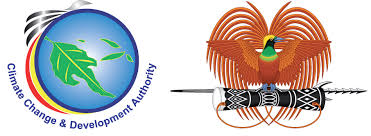Acting Managing Director for Climate Change and Development Authority (CCDA) Ms. Debra Sungi said CCDA as the lead government agencies spearheading the move to reducing carbon emissions is working with stakeholders in the government and private sector in formulating an Electric Vehicle Policy, Investment Plan and Implementation Roadmap.
Speaking during the opening of the “Electric Vehicle Policy Framework, Investment Plan and Implementation Roadmap” Validation Workshop today at Airways Hotel, Sungi said in order to achieve the Vision 2050 targets in reducing emissions, policies must be formulated to ensure PNG is on par with the transitioning world.
“It is an honour to stand before you today as we gather to validate a critical step forward in Papua New Guinea’s journey toward sustainable transportation-the Electric Vehicle (EV) policy, investment plan and Implementation Roadmap. This Policy Development shows a significant step toward a cleaner, more sustainable future for our nation.” Sungi said.
“The issue at hand is not only an environmental crisis; it is an economic and public health challenge. Rising fuel imports strain our economy, while air pollution and climate impacts threaten our communities,” she said.
“Electric Vehicles is one of the policy measures in our NDC targets.”
“PNG has committed to carbon neutrality in the energy sector, and transitioning to electric mobility is a key strategy to achieve this.”
Sungi added that because developed countries are already having carbon neutral targets, where by 2030, countries like Japan will stop manufacturing vehicle that run on fossil fuels such as petrol and diesel, PNG has to be ready for this change so PNG is not left behind.
“We as a government must provide an enabling environment to manage those changes. When they stop manufacturing vehicles that run on fossil fuels, we will be ready to adapt to this transition,” she said.
“We will also look at establishing renewable energy power plants to sustain this transition. Such as building solar farms because we can’t use diesel generators to power the electric vehicles.”
“This will also be captured in the policy framework to ensure that we achieve the desired outcome,”
In 2017 alone, Papua New Guinea’s energy sector accounted for 80.5 % of net emissions, driven largely by fossil fuel consumption in manufacturing, construction and transportation, according to the Acting Managing Director for Climate Change and Development Authority Ms. Debra Sungi.
The transport sub-sector alone contributed 23 % of these emissions-a sharp increase from 17% in 2015 and with vehicle numbers projected to grow from 155, 000 in 2005 to 600, 000 by 2030, emissions from transport could double in 20 years if we continue business as usual.
Sungi said Electric vehicles (EVs) offer a cleaner, more efficient alternative and by shifting to EVs powered by renewable energy we can;
• Reduce emission in the transport sector supporting PNG’s NDCs
• Reduce fuel import dependency
“Yet barriers remain; limited coordination, gaps in expertise, unclear policies and lack of public awareness, hence this project- Promoting Electric Mobility in PNG supported by GCF is so important.”
Through collaboration between the Dept. of Transport, CCDA and the GGGI, the team have developed;
- EV Policy framework
- An Investment Plan
- An Implementation Roadmap
These documents are blue prints for PNG’s transition to electric mobility. They outline;
- Strategic priorities for EV adoption
- Investment pathways to attract public and private financing
- A clear roadmap to ensure phased, equitable implementation
“But these documents are not final. Their success depends on your expertise, feedback and collective endorsement,” Sungi told the workshop participants.
“Today’s workshop is about validation—ensuring these documents are technically sound, inclusive and aligned with PNG’s climate and development goals. Your feedback will shape a strategy that works for government, businesses and communities alike,”
“Together, we can position PNG as leader in sustainable transport in our region, reducing emissions while driving innovation and prosperity.”
The Readiness project, “Promoting Electric Mobility in Papua New Guinea,” aims to overcome barriers hindering electric vehicle (EV) adoption in PNG, addressing issues like coordination, expertise, planning, and public awareness. It seeks to reduce greenhouse gas (CHG) emissions by promoting EV mobility and supporting PNG’s emission reduction goals, especially in the transport sector. Key outputs include establishing stakeholder engagement mechanisms, training relevant stakeholders for Green Climate Fund (GCF)-funded activities, conducting research studies, identifying climate technologies and developing sectoral strategic frameworks. These efforts aim to facilitate the planning and implementation of GCF-funded activities ultimately contributing to PNG’s GHG emission reduction targets and promoting sustainable transportation solutions.











